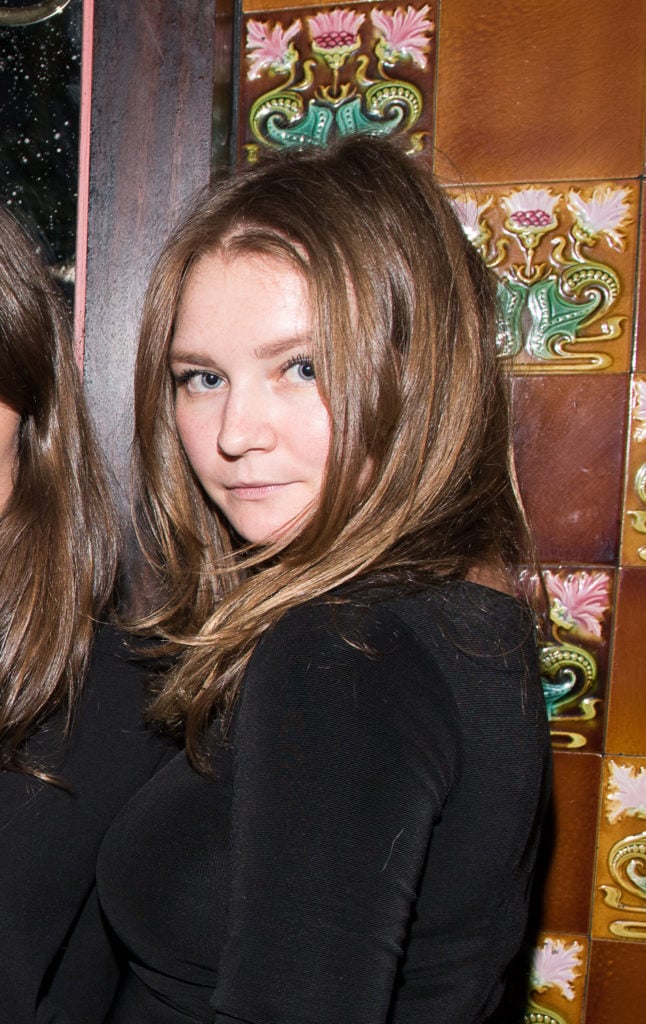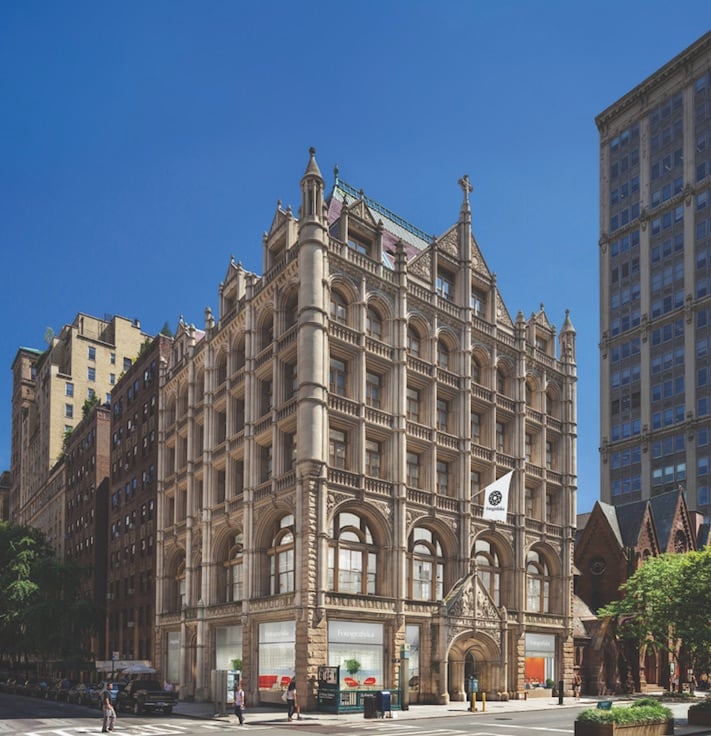Law & Politics
Anna Delvey Tried to Con Bankers Into Lending Her Millions of Dollars to Open an Art Foundation, Witnesses Say
The purported art foundation has become a major focus of the ongoing criminal case.

The purported art foundation has become a major focus of the ongoing criminal case.

Eileen Kinsella

The contemporary art center and social club that alleged con artist Anna Sorokin, aka Anna Delvey, pitched to potential investors and lenders has become a major focus in her ongoing trial in New York State Supreme Court.
Several banking executives testified last week that Sorokin lied about her assets and net worth in order to secure tens of millions of dollars in funding for the purported Anna Delvey Foundation, which was to be housed in a historic building on Park Avenue South.
On Friday, Dennis Onabajo, formerly a banker at Fortress Investments, outlined Sorokin’s attempts to borrow as much as $29 million, which failed when she didn’t satisfy due diligence requirements and background checks. Among the red flags raised during the process was a discrepancy in her birthplace: Onabajo said Sorokin told the bank she was born in Germany, but a designation on a separate identification card listed her place of birth as Russia.
When Onabajo requested more detail about Sorokin’s assets and the source of her wealth, she allegedly furnished letters from nonexistent accountants who prosecutors said were “completely fabricated.” (Among the internet searches prosecutors said Sorokin conducted were how to create fake emails that don’t bounce back.)
In emails, a purported accountant named Peter told Fortress Investments that he was providing a translation from another accountant, who said that Delvey had inherited a trust at age 25 from her late grandfather, Alexander Decker. The funds in the trust came largely from the sale of his “extensive art collection from Medieval (Byzantine, Early Christian and Late Antique), Northern Mannerism and Baroque periods.”
When Onabajo asked for specifics about the sale, including whether it had been conducted through an auction, Sorokin promised to provide more information, but does not seem to have offered further details.
Sorokin’s attorney, Todd Spodek, quickly called Onabajo’s credibility into question, telling the court during opening arguments that he had sent Sorokin more than 150 texts after the loan was declined. Onabajo allegedly told her that she was “insanely beautiful” and offered to come to her hotel room.
Spodek did not respond to a request for comment.
On Thursday, the jury heard testimony from Citibank managing director Yakub Mathew, who described meeting Sorokin at a Fourth of July party at the home of an artist in mid-2016 when he was introduced to her by another wealthy client of the bank, Meera Ghandi. Before leaving the party, Mathew said Sorokin showed him the plans for her art center on her laptop computer and he gave her his business card.
In that 80-page PDF, which was introduced as evidence in the trial, Sorokin claimed to be a lifelong art collector and name-dropped connections to various art-world luminaries. Mathew says after the initial meeting he began communicating with Sorokin about the possibility of becoming a Citi Private Bank client. Later, she allegedly deposited fake checks that allowed her to withdraw $89,000 from Citi before the bank discovered the checks had bounced.
Mathew recounted efforts in April 2017 to recoup all or part of that charge, reading aloud copies of text messages that repeatedly emphasized the urgency of the matter of repayment. Sorokin’s replies alternated between assuring him that a German wire was forthcoming and telling him that she was busy conferring with her lawyers about the lease for the art foundation’s building.
At one point, when Mathew advised her that the repayment situation was becoming “grave,” Sorokin’s response, as he read aloud was, “Yesterday was a federal holiday in Germany. You can Google it.”
Spodek questioned Mathew’s due diligence and compliance efforts before accepting Sorokin’s story that she was a “major” German heiress worth more than $60 million.
Earlier in the week, the jury heard testimony from Gabriel Calatrava, director of the design firm GAC2019 and son of renowned architect Santiago Calatrava, who worked with Sorokin for more than two years on the foundation. Questioning from Sorokin’s attorney focused, once again, on the extent of Calatrava’s due diligence before supporting Sorokin’s efforts.
There are still more than 40 witnesses waiting to testify, including real estate impresario and art collector Aby Rosen and hotelier André Balazs
The high-profile trial has generated a media frenzy, with some outlets reporting that Sorokin had several fashion “meltdowns” last week over dissatisfaction with her court outfits. She has hired stylist Anastasia Walker, though it is unclear who is paying for the service. She entered court Thursday morning in a black sheer blouse and pants, only to sit down at the table and start crying, prompting Spodek to ask the presiding judge, Diane Kiesel, for additional time to talk to his client outside the courtroom before the day’s proceedings began.

Fotografiska will open a new photography center in the Flatiron DIstrict in Spring 2019. Photo courtesy of Fotografiska.
The historic building at 281 Park Avenue South, which is part of the holdings of Rosen’s real estate company, RFR, was leased last summer by Stockholm-based photography center Fotografiska. Colorful banners in the building’s windows currently advertise the anticipated opening of the center, along with the words, “WTF is Fotografiska?”
Sorokin is charged with grand larceny in the first degree, grand larceny in the second and third degrees, and theft of services. She faces up to 15 years in jail if convicted. Since late 2017, when she was arrested, she has been held without bail at Riker’s Island.
—Additional reporting by Caroline Goldstein.